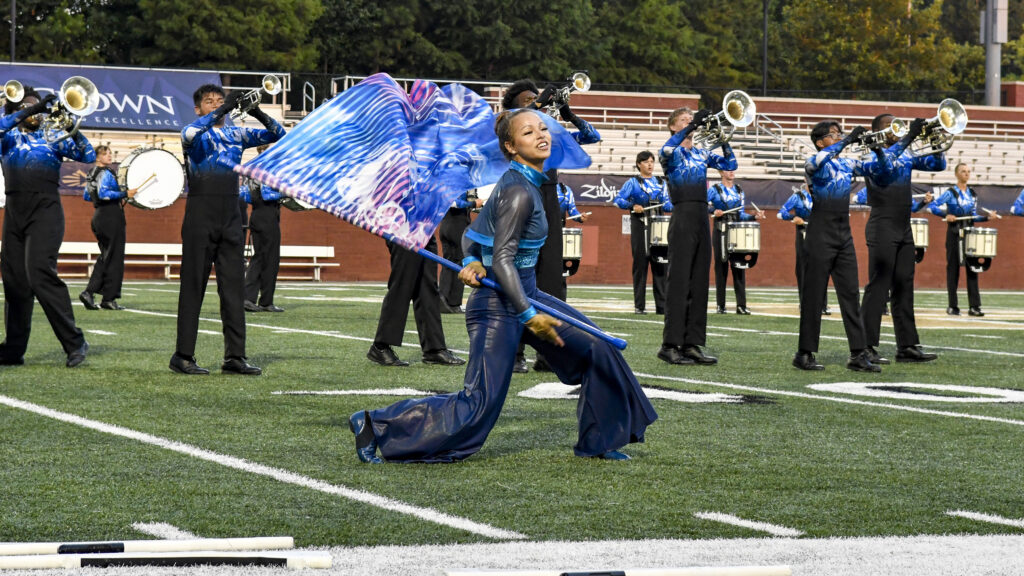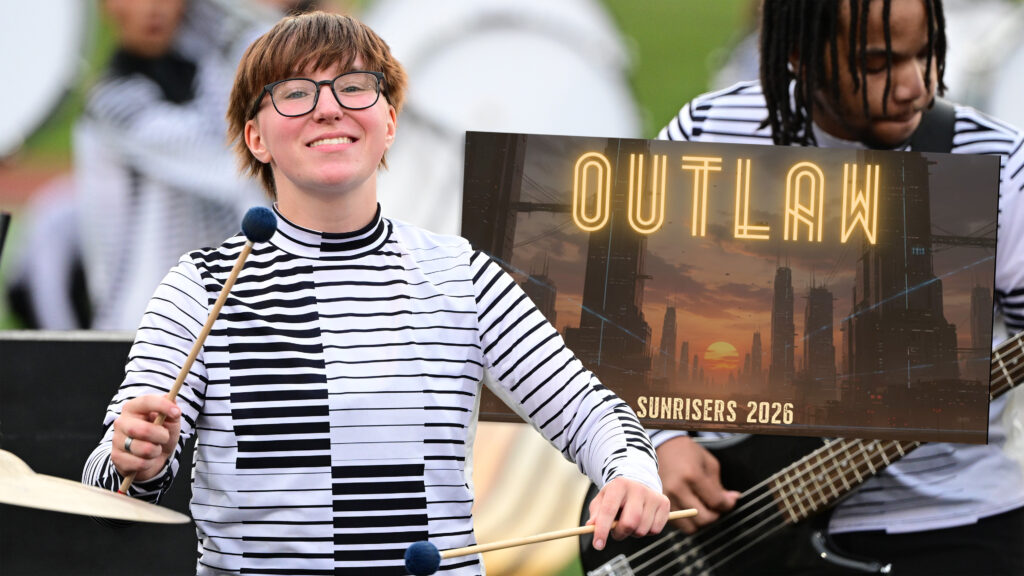
After a four-year absence from Orlando’s Citrus Bowl Stadium, the Drum Corps International World Championship returned for its most recent visit to the land of Disney to witness Blue Devils do something the corps did there in 1996 and 1997 — win. It was the corps’ 11th Drum Corps International Championship, with “The Phenomenon of Cool” cooling the heels of The Cavaliers, who were trying to spin their way to DCI’s first World Class four-peat. Just 0.15 under “Spin Cycle, The Cadets were enjoying their “Favorite Things” from their past and that of Santa Clara Vanguard and the Madison Scouts. Phantom Regiment’s “Harmonic Journey” was for many the show of the year, introducing body sculpturing to the corps and some brilliant drill maneuvers that were also new to the organization. Santa Clara Vanguard’s “Pathways” led the viewer through countless shifting hallways in the drill, and Boston Crusaders gave us another spin on “Malegue?±a” to compare to that of Cadets’. Further down, it was the last year we witnessed Magic of Orlando in the Finals. Carolina Crown’s 10th place “Bell-issimo” was conceived as a production focusing on how bells have been used worldwide for centuries to announce both joyful celebrations and times of sorrow and reverence. With almost a full minute of a ball-peen hammer hitting a large cast bell and a variety of metallic keyboard sounds accompanying the percussion, “Mass” from H. Owen Reed’s 1948 concert band masterpiece, “La Fiesta Mexicana,” called the faithful to worship before the first massive hit of the brass announced the gathering of the reverent. The repetitive pattern of three bell tolls spread evenly over two bell tolls of a different pitch gave the sense of multiple bells ringing across the Mexican village.

Michael Boo was a member of the Cavaliers from 1975-1977. He has written about the drum corps activity for more than a quarter century and serves as a staff writer for various Drum Corps International projects. Boo has written for numerous other publications and has published an honors-winning book on the history of figure skating. As an accomplished composer, Boo holds a bachelor's degree in music education and a master's degree in music theory and composition. He resides in Chesterton, Ind.





